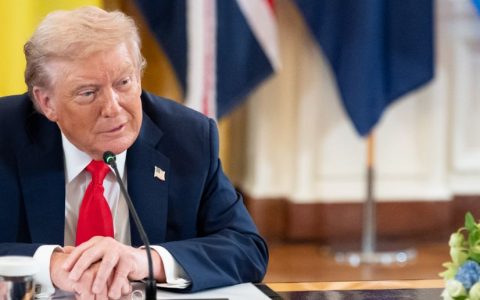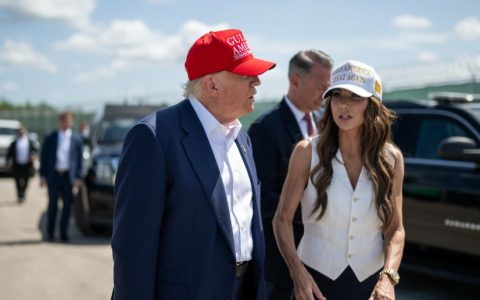
There have been multiple breaches of security. The Supreme Court has fallen victim.
And now the U.S. Supreme Court leaks have created a huge national crisis.
Leaks from the Supreme Court Spark Concerns Over Judicial Integrity
The recent revelations of private memoranda and discussions among Supreme Court justices, published by The New York Times, have prompted a wave of concern from legal experts, who describe the leaks as potentially “destructive” to the institution’s functioning.
According to The New York Times, the leaked documents allegedly reveal Chief Justice John Roberts playing a pivotal role in shaping the outcomes of three major cases. These cases reportedly involved legal issues surrounding the January 6 Capitol riots and questions of presidential immunity for Donald Trump. The report claims Roberts “molded” the court’s decisions, including providing crucial support for Trump’s immunity in one case and making last-minute, unexplained changes to the authorship of politically charged opinions.
This latest disclosure arrives on the heels of a 2022 leak of a draft opinion in the Dobbs case, which resulted in the overturning of Roe v. Wade. That incident, combined with ongoing efforts by Democratic lawmakers and the Biden administration to reform the court and enforce stricter ethics, has heightened tensions around the court’s operations.
Chief Justice John Roberts targeted by Supreme Court leak
READ: https://t.co/2cR5SEHllW#JohnRoberts #Justice #Left #Democrat #Republicans #US #Politics #News #Viralvideo #ViralVideos #Explore #Explorepage pic.twitter.com/3argxRDqGh
— Washington Examiner (@dcexaminer) September 17, 2024
Republican lawmakers, such as Senators Lindsey Graham (R-SC) and John Kennedy (R-LA), argue that these efforts are politically motivated, aiming to delegitimize the court, which now holds a majority of justices appointed by Republican presidents.
Some legal experts share this view, interpreting the leaks as part of a broader attempt to undermine the credibility of the Supreme Court.
“I think it’s enormously destructive to the court when people inside the court disclose to the press confidential memoranda, confidential emails and what appears to even be remarks made at the justices’ conference,” James Burnham of King Street Legal and a former senior official at the Justice Department, told Fox News Digital.
He continued, “It’s destructive because the justices can’t be candid with each other if they think that anything they say could end up in The New York Times. And that means they’re going to speak less to each other. It means they’re not going to be able to deliberate with the same openness that they historically have, and it ultimately undermines the court’s decision making.”
Burnham also expressed concern that the leak seemed to be an effort to cast Roberts and other majority justices in a negative light, particularly in cases where their decisions were viewed as politically sensitive. “It reads to me like somebody is trying to cast a negative light on the Chief Justice and the other justices in the majority for what I think was a plainly correct and brave decision,” he said.
Carrie Severino, president of the Judicial Crisis Network, similarly condemned the leak, saying, “If there is someone on the Court who deserves censure for being overly political in this case, it’s the individual who leaked” the internal documents. Severino emphasized that the leak “is of a piece with the continued left-wing PR campaign against the Court.”
“It’s an attempt to smear the Court as an institution, and as part of that, some justices have been targeted more than others,” Severino added.
Constitutional attorney John Shu, who served in both Bush administrations, echoed concerns about the leak’s political motives. Shu suggested that the leaks might be intended to influence Roberts’ future decisions by keeping him aligned with the court’s center or possibly pushing him toward a center-Left stance in upcoming cases, especially if Trump is re-elected.
“Because he is the Chief Justice, he gets to assign opinions when he’s in the majority, which is much of the time, and he has administrative power that the other justices do not have,” Shu noted. “And much like the President is the embodiment of Article 2, the Chief Justice is the embodiment of Article 3.”
Shu concluded by calling the situation alarming, stating, “It’s really scary that yet another norm has been shattered, violating the sacred confidentiality of deliberations and the opinion drafting process.”
The continued leaking of sensitive court information is raising serious concerns about how the court can function in an increasingly politicized environment, with experts fearing it may erode the justices’ ability to engage in candid and open deliberations — fundamental to the judicial process.
Legal experts warn that latest Supreme Court leaks are 'enormously destructive': Following revelations of private memoranda and conversations between Supreme Court justices published in the New York Times, legal experts are warning that such sensitive… https://t.co/GM00Pm8mrB pic.twitter.com/mzjEQjMPQQ
— Janie Johnson – America is Exceptional (@jjauthor) September 16, 2024
Stay tuned to the DC Daily Journal.





